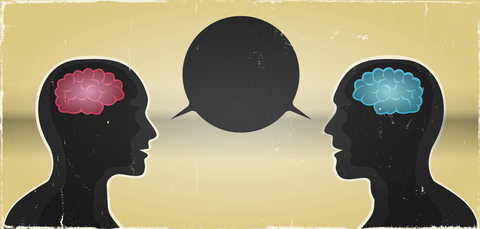viernes, 29 de mayo de 2015
jueves, 28 de mayo de 2015
miércoles, 27 de mayo de 2015
Grti!!!!
The technical definition
Grit is a personality trait possessed by individuals who demonstrate passion and perseverance toward a goal despite being confronted by significant obstacles and distractions. Those who possess grit are able to self-regulate and postpone their need for positive reinforcement while working diligently on a task.
- Manage your distractions. We all have things in our life that pull us away from what really matters. Whether it’s social media, television, our bad habits, or an unhealthy relationship, they all offer us early rewards without lasting value. Discover what most commonly distracts you, determine what small reward it’s offering you, and in your moments of temptation, remind yourself of the greater reward that you are trying to achieve in realizing your ultimate goal.
- Eradicate your “fixed mindset.” The results are in: success does not just land itself on the laps of those who are privileged, blessed, or lucky. Talent is earned; if you desire it, you must work for it.
- Confront your fears of failure. Everyone fails and encounters some level of challenge. If something is valuable enough to you, decide that you are willing to experience some amount of failure in order to achieve it. Without that, you will not be vulnerable enough to just begin.
- Generate your own early rewards. When there’s a task that feels really big, it’s easy to get discouraged. If you break it down into smaller pieces and reward yourself along the way, you will be more aware of your progress and more likely to stay motivated to the task at hand.
martes, 26 de mayo de 2015
lunes, 25 de mayo de 2015
viernes, 22 de mayo de 2015
jueves, 21 de mayo de 2015
More Zest!!!
The Benefits of Zest
In a wonderful post on enthusiasm, blogger and real-estate investor Matt Theriault (“The Do-Over Guy”) lists the benefits of zest :
- It makes life more fun. “It’s like an inner light,” Theriaul says, “an inner energy, and it really makes life easier.”
- It’s attractive to people. “Enthusiasm is probably one of the most attractive qualities any person can have.”
- It makes you want to do things, and then you get better results and fulfill more of the potential of any situation or experience.
- It makes for powerful communication. It makes your message stronger.
- It gets things done. “Enthusiasm is the switch.”
miércoles, 20 de mayo de 2015
Zest!
What does zest look like?
How do I grow it?
Exercise!
Refuel
Become one with nature
Gain autonomy
Do what you love
How do I grow it?
Exercise!
Refuel
Become one with nature
Gain autonomy
Do what you love
Those with high levels of zest are full of life and energy, whereas those on the other end of the spectrum are generally lethargic and resigned. People with zest approach setbacks and serendipitous moments with enthusiasm. This excitement can help energize people around them. For instance, when participating in a brainstorming exercise, someone with zest might talk about ideas excitedly, encourage participants to share their ideas, and then help to build on those ideas.
It’s important to know that there are still a lot of open questions about zest, including the degree to which it is a teachable skill and, to the extent it can be learned, how best to teach it. Though the research about zest is still emerging, we do have some ideas about how you might develop zest.
Make a concerted effort to exercise because physical activity can increase your energy and vitality.
Get a good night’s sleep and eat a healthy breakfast.
Find time to engage with the natural environment, as contact with nature can influence vitality.
Play an active role in your decisions, because greater autonomy tends to lead to greater energy and engagement.
Dr. Jonathan Haidt suggests doing something because you want to do it, not because you have to do it. Find your passion. What do you love to do? If you already know what your passion is, then build time for it in your schedule. If you don’t, then try to discover it. What did you love to do when you were younger? Try it again now.
jueves, 14 de mayo de 2015
Key Elements of Social Intelligence (SI)
What are the key elements of social intelligence?
1. Verbal Fluency and Conversational Skills.
The highly socially intelligent person can carry on conversations with a wide variety of people, and is tactful and appropriate in what is said. Combined, these represent what are called “social expressiveness skills.”
2. Knowledge of Social Roles, Rules, and Scripts.
Socially intelligent individuals learn how to play various social roles. They are also well versed in the informal rules, or “norms,” that govern social interaction. In other words, they “know how to play the game” of social interaction. As a result, they come off as socially sophisticated and wise.
3. Effective Listening Skills.
Socially intelligent persons are great listeners. As a result, others come away from an interaction with an SI person feeling as if they had a good “connection” with him or her.
4. Understanding What Makes Other People Tick.
Great people watchers, individuals high in social intelligence attune themselves to what others are saying, and how they are behaving, in order to try to “read” what the other person is thinking or feeling.
5. Role Playing and Social Self-Efficacy.
The socially intelligent person knows how to play different social roles – allowing him or her to feel comfortable with all types of people.
6. Impression Management Skills
ersons with SI are concerned with the impression they are making on others. They engage in what I call the “Dangerous Art of Impression Management,” which is a delicate balance between managing and controlling the image you portray to others and being reasonably “authentic” and letting others see the true self. This is perhaps the most complex element of social intelligence.
miércoles, 13 de mayo de 2015
Suscribirse a:
Comentarios (Atom)


